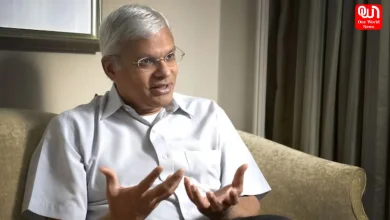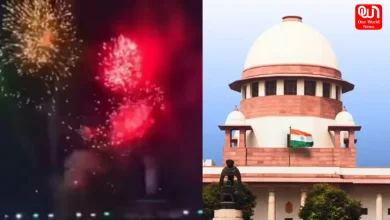ED Files Chargesheet Against Elvish Yadav and Fazilpuria Over Use of Protected Wildlife
ED Files Chargesheet Against Elvish Yadav and Fazilpuria for using protected wildlife species in videos, facing PMLA charges and property attachment
ED Files Chargesheet Against Elvish Yadav and Fazilpuria for Using Protected Wildlife in Videos, Facing PMLA Charges and Property Attachment
The Enforcement Directorate (ED) has filed a chargesheet against popular YouTuber Elvish Yadav and singer Fazilpuria for featuring protected wildlife species in their digital content. Both entertainers are accused of misusing protected resources for commercial gain, attracting the scrutiny of law enforcement authorities.
According to reports, Fazilpuria, also known as Rahul Yadav, featured protected wildlife in the music video “32 Bore.” He had a financial arrangement with MS Sky Digital India Pvt. Ltd. for the digital distribution and monetization of the video, receiving a total of Rs 50 lakh. Of this amount, Rs 36.2 lakh was transferred in multiple tranches, while Rs 14 lakh was reportedly used for personal and smaller expenditures. The ED concluded that Fazilpuria knowingly generated, acquired, and possessed proceeds of crime (POC) from these transactions, leading to money laundering charges under the Prevention of Money Laundering Act (PMLA).
read more: Diwali 2025: How To Keep Your Pets Safe From Noise This Festive Season
Elvish Yadav, the owner of the Elvish Yadav Vlogs YouTube channel, allegedly uploaded a video featuring protected wildlife and earned Rs 84,000 from it. This revenue has also been classified as proceeds of crime and has been seized by the agency. The ED has additionally attached several properties derived from the POC. These include Fazilpuria’s agricultural land valued at Rs 50 lakh, a fixed deposit of Rs 1,24,067.52 with Sky Digital, and a fixed deposit of Rs 84,000 with ICICI Bank in Elvish Yadav’s name.
The charges against both public figures are under Section 3 of the PMLA, and they face penalties as outlined in Section 4 of the Act. The agency’s action highlights the growing scrutiny of digital content creators and entertainers who misuse wildlife or other protected resources for financial benefits. Legal authorities are sending a strong message that monetizing content featuring protected species can lead to serious consequences.
Elvish Yadav has been in the spotlight for his involvement in the Noida Snake Venom case. The YouTuber was arrested by Noida Police in March 2024 under provisions of the Wildlife Protection Act, 1972, along with charges for criminal conspiracy under Section 120B of the Indian Penal Code. Media reports suggested that Yadav admitted to certain aspects of the case; however, no official statement confirmed this. A week after his arrest, Elvish Yadav was granted bail on a Rs 50,000 bond. His lawyer, Prashant Rathi, stated that the arguments were based on claims of false accusation and lack of evidence under the NDPS Act. The court granted bail to Yadav and his two friends, each on sureties of Rs 50,000.
This latest chargesheet reinforces the legal risks faced by content creators who exploit protected wildlife for financial or entertainment purposes. Authorities have made it clear that the use of such species in videos is not just a breach of wildlife laws but also falls under the purview of money laundering when proceeds are generated and used knowingly.
read more: International Artist Day: Honoring Creativity and Global Artistry
The ED’s action against Elvish Yadav and Fazilpuria is expected to set a precedent for stricter monitoring of digital content creators. With the increasing popularity of wildlife-themed content and music videos, the case underlines the importance of adhering to legal guidelines to avoid penalties, seizure of properties, and criminal charges. Content creators are urged to ensure that all elements in their productions comply with wildlife protection regulations to avoid similar legal entanglements.
By filing this chargesheet, the ED has reinforced the principle that commercial gains derived from illegal or unethical use of protected resources are liable to be treated as proceeds of crime. The case continues to unfold, attracting widespread media attention and public interest in the accountability of influencers and entertainers in India.
We’re now on WhatsApp. Click to join.
Like this post?
Register at One World News to never miss out on videos, celeb interviews, and best reads.








